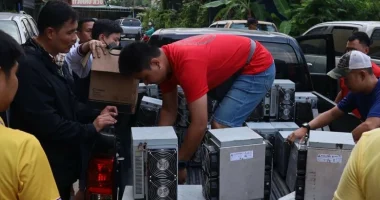Air Quality in Bangkok: PM2.5 Levels Exceed Safety Standards
On Saturday morning, the Bangkok Metropolitan Administration’s (BMA) Air Quality Information Centre reported that PM2.5 levels in 22 districts of Bangkok exceeded the national safety standard. The city’s average PM2.5 concentration was recorded at 37.4 micrograms per cubic meter (µg/m³), slightly below Thailand’s standard of 37.5 µg/m³ over a three-hour average from 5 am to 7 am. This marks an increase from the previous day’s reading of 35.2 µg/m³.
Health Risks Associated with Elevated PM2.5 Levels
PM2.5 refers to fine particulate matter with a diameter of 2.5 micrometers or less. These particles can penetrate deep into the lungs and enter the bloodstream, posing significant health risks, including respiratory and cardiovascular diseases. Major sources of PM2.5 pollution include traffic emissions, industrial activities, forest fires, and the burning of agricultural residues.
Districts with the Highest PM2.5 Concentrations
The five districts reporting the highest PM2.5 levels were:
- Lat Krabang: 52.5 µg/m³
- Nong Chok: 51.2 µg/m³
- Bang Na: 48.6 µg/m³
- Khlong Sam Wa: 48.6 µg/m³
- Bueng Kum: 48.2 µg/m³
These levels significantly exceed the national safety standard, indicating a pressing need for public health interventions.
Public Health Advisory and Recommendations
In response to the elevated PM2.5 levels, the BMA advises residents to take precautionary measures. Individuals are encouraged to wear face masks, limit outdoor activities, and consider working from home if possible. Those experiencing symptoms such as coughing, eye irritation, or difficulty breathing should seek medical attention promptly.
Monitoring Air Quality in Bangkok
Residents can stay informed about daily air quality levels through various platforms, including the AirBKK application, the official website www.airbkk.com, Line Alert, and the Bangkok Metropolitan Administration’s Environment Department Facebook page. Regular monitoring can help individuals make informed decisions to protect their health during periods of poor air quality.
Conclusion: Addressing Bangkok’s Air Quality Challenges
The recent surge in PM2.5 levels across multiple districts in Bangkok underscores the ongoing challenges the city faces in managing air pollution. Continuous monitoring, public awareness, and proactive measures are essential to mitigate health risks associated with poor air quality.








